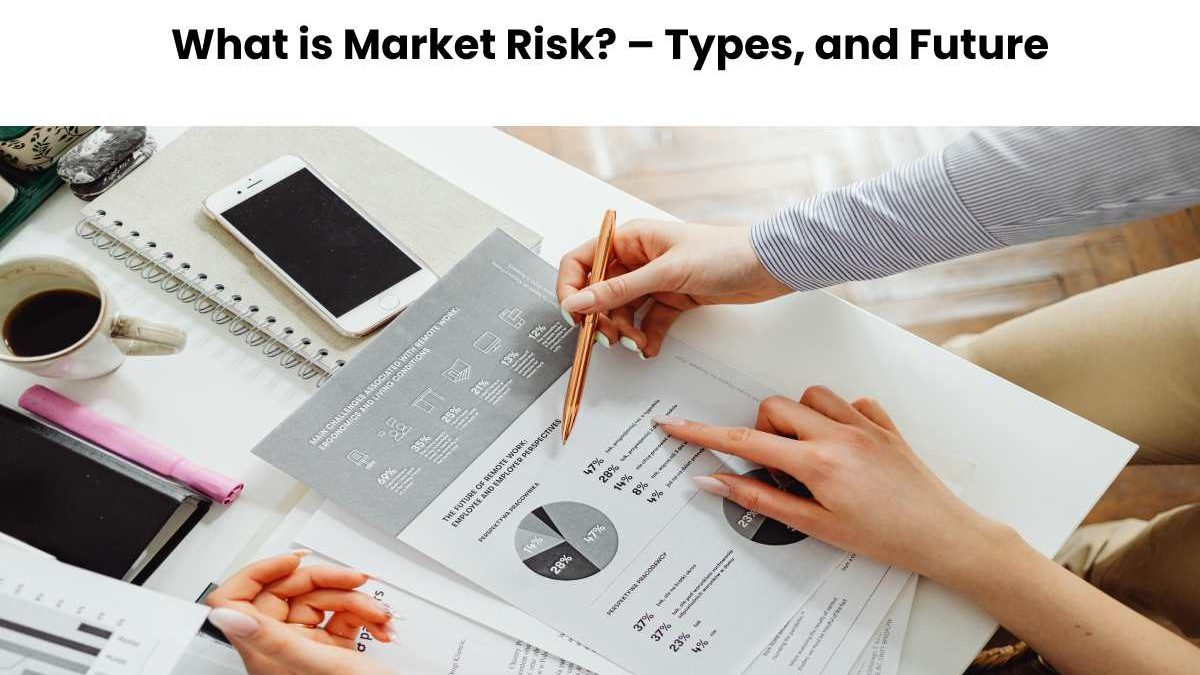Table of Contents
What is Market Risk?
Market risk is one of the most common financial risks that can arise because it is related to the variation of a market price or rate. Below we tell you more about the types that exist and how you can deal with them.
Also known as systematic risk, this risk arises from the loss of value that an asset may have due to its price fluctuation in the market. In other arguments, it is the risk that the value of an asset decreases due to variations given by market conditions, which may be due to value prices, interest or exchange rates, or changes in the prices of raw materials.
In the case of a company, market risk is associate with contingencies that, directly or indirectly, can alter the commercial or economic variables of sales or listing.
Types of Market Risk

There are different risks associated with market risk, these are:
1. Currency Risk
It is the risk related to the loss that occurs due to exchange variations. This type of market risk is link to the volatility of the company depending on the currencies it handles and can be:
Transactional risk is related to operations in foreign currencies that are not due.
Economic risk is associated with the official currency use by the company to carry out its economic activities.
Accounting risk: it is given by operations in foreign currencies.
2. Commodity Price Risk
This market risk refers to the probability that there will be a negative result related to the prices of the products, services, and, at the same time, of the company in relation to these commodities.
For example, if the organization must acquire a product, it would be ideal if its value in the market fell, and if within its social activity, it buys it to sell it, it would be convenient for its price to increase. However, this depends on supply and demand.
3. Interest Risk
It is due to the variation of interest in the opposite direction to that established in the organization. If the company has some credit or loan, it will help if the claim goes down. If, on the contrary, the entity is the one that lends, it will benefit if the interest goes up.
4. Stock Price Risk
This market risk occurs when there is a probability that the entity will have negative results in its stock portfolio. It can be a specific risk that affects a reduced number of organization assets or systematic or non-diversifiable, which affects all purchases to a greater or lesser extent.
How to Deal With Market Risk?
These are some recommendations that you can put into practice in your organization to manage market risks that are given by the variations that occur in it.
- Establish policies that are related to currency fluctuations in national and international markets.
- Be alert to each country’s inflation so that the movements are not affected by interest rates.
- Make marketing strategies for the product or company to position itself.
- Implement technological solutions such as Pirani Riskment Suite to automate the management and control of risks such as these to achieve the objectives of your company. Start doing it for free here.
Finally, it is essential to remember that market risk depends on supply and demand, which are usually related to sales and the company’s value.
Another type of risk relevant for organizations is non-financial ones, which relates to corporate governance, risk, and compliance with internal and external regulations. With the Pirani Riskment Suite software, you will be able to manage this type of risk more quickly. It allows you to identify, measure, control, and monitor them to prevent their materialization or mitigate their impact should they occur.
The Future of Finance
As you have seen, the world of Finance and Banking is part of everyday life. Not only that, but it is an important sector in the world. Many concepts are not well understood, showing the complexity of how this sector works. Are you interested in training as an expert in Finance? Then you can’t miss this opportunity. The University of Alcalá offers a Master’s in Quantitative Finance. Thanks to this, its students will be qualified professionals thanks to its faculty.
Conclusion
Market risk remains the risk of losses in positions arising from movements in market variables like prices and volatility. There is no unique classification as each classification may refer to different aspects of market risk.
Also Read: How to Motivate and Encourage Employees?


